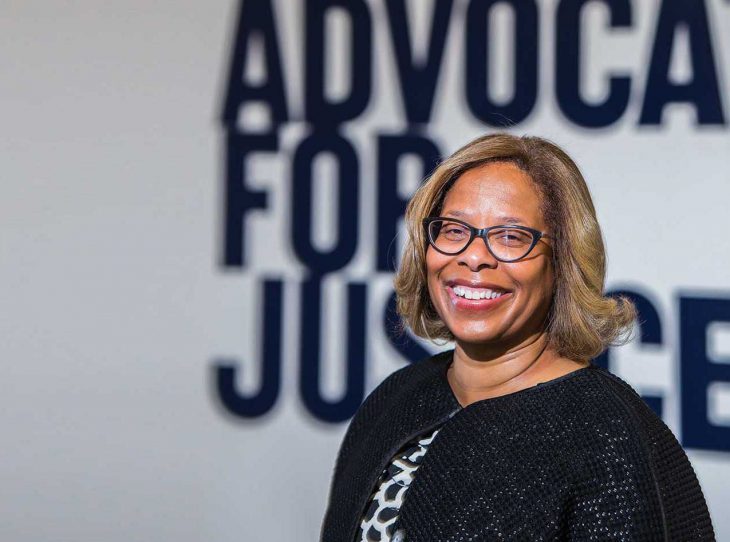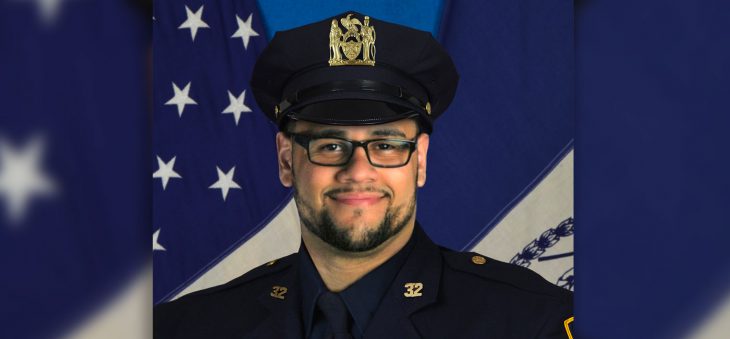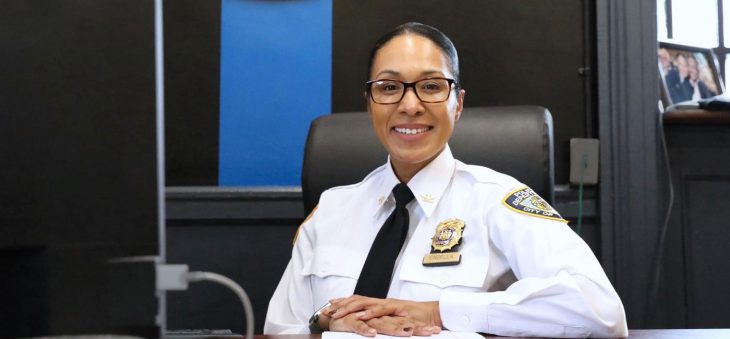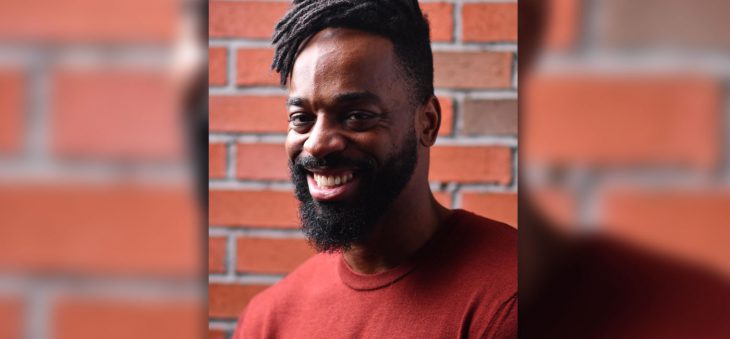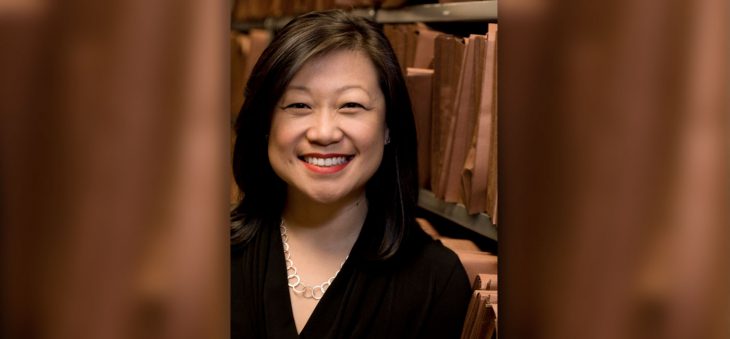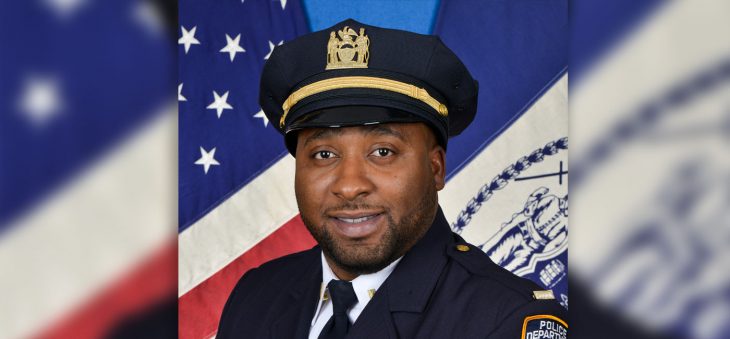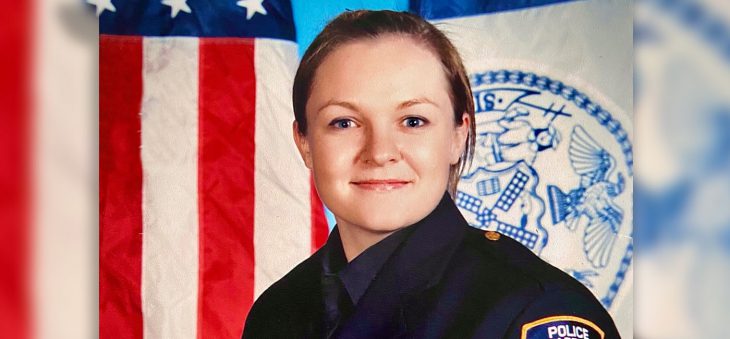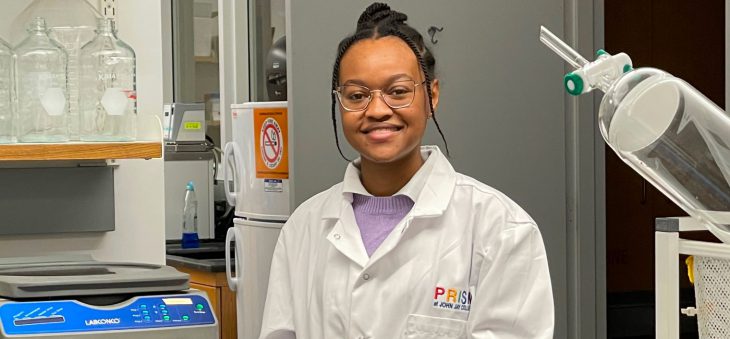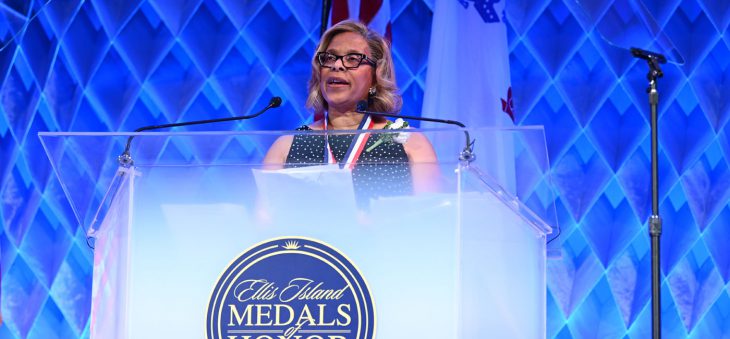CUSP Takes Center Stage at 2020 Davos World Economic Forum
The world’s top leaders, thinkers, and innovators saw firsthand the incredible success of John Jay’s Completion for Upper-division Students Program (CUSP) at the 2020 Davos World Economic Forum. A video played at the convening showcased the innovative way CUSP is using “predictive modeling” data—established through a partnership with MasterCard Center for Inclusive Growth, The Rockefeller Foundation, DataKind, and The Price Family Foundation—to identify students needing additional support. These strategic initiatives significantly boosted our graduation rates. Without any intervention, a predicted 54 percent of rising seniors with 90-plus credits would graduate within two years. By using predictive analytics, and providing additional support, 73 percent of those same students graduated within one year in 2019, the pilot year of the CUSP program.
Student Emergency Funding Program Helps Our Most Vulnerable Students During Covid-19 Crisis
As part of a special campaign for Covid-19 relief, and the generosity of the John Jay community and an anonymous donor, funds were raised to support the needs of students for emergency funds and long-term laptop loans in Spring 2020. In total, $128,856 was raised, thanks-to a $50,000 match from the anonymous donor. Students—regardless of their status—are able to access the funds by applying for Student Emergency grants. Emergency funds are intended as a supplemental financial resource for students when they’re unable to meet immediate and essential expenses due to temporary hardship. John Jay also offers an array of resources for our students including student emergency wellness grants, the food pantry, book vouchers, and tuition assistance.
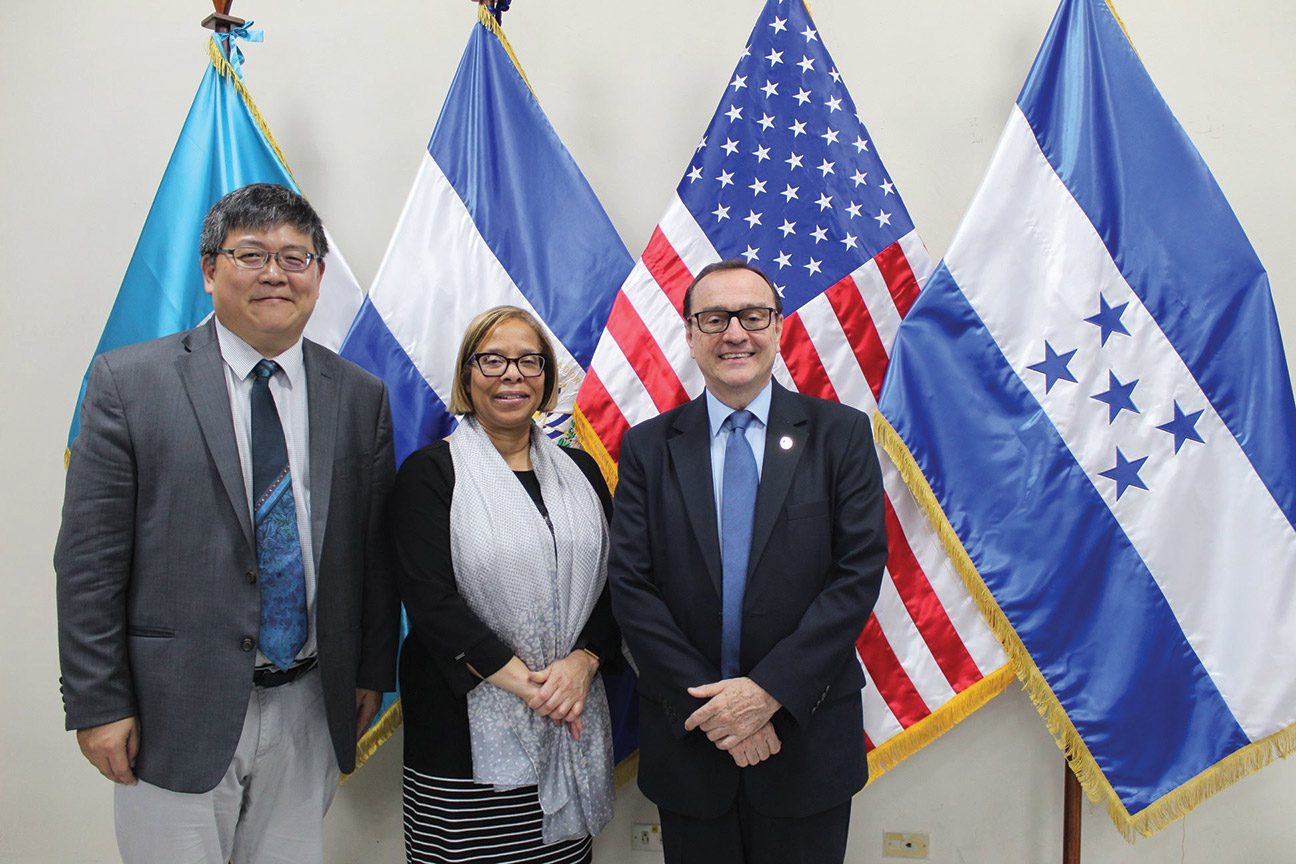
John Jay College Extends Partnership with Institutions in El Salvador
Since 2017, John Jay College has worked in partnership with the National Academy of Public Security (ANSP) and the José Simeón Cañas Central American University (UCA) in El Salvador, to develop the Academy for Security Analysis (ASA), a regional capacity-building program funded by the U.S. Agency for International Development. The program, offered to police officers, law enforcement agents, and others working in the criminal justice system, uses research, data, and scientific methods to identify and implement evidence-based policies to reduce crime and violent behavior in El Salvador, Guatemala, and Honduras, collectively known as the Northern Triangle region of Central America. Earlier this year, President of John Jay College Karol V. Mason visited the institutions and signed a Declaration of Shared Interests with both ANSP and UCA, extending the College’s partnership role at each institution. At ANSP, John Jay will enhance its cooperation in police modernization, with the new stage of the partnership including a three-week long Police Leadership Program offered by John Jay instructors to Salvadoran police officers. Meanwhile, UCA and John Jay will enhance their collaboration in teaching, research, and justice reform. Already, John Jay faculty has created a master’s degree program in Criminology to be offered at UCA starting in 2021. The program is the first of its kind in the Northern Triangle region.
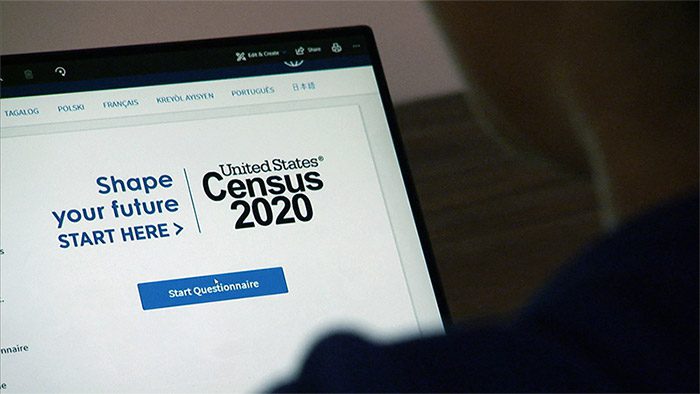
John Jay Students Work to Get Everyone Counted in 2020 Census
While the Covid-19 health crisis put a halt on many Spring 2020 plans, one endeavor that remained full steam ahead was getting everyone counted in the the 2020 Census. John Jay students working with the CUNY Census Corps began working remotely in March, providing outreach communications from their homes and informing New Yorkers about the importance of being counted in the Census. Using their digital savviness, students reached out to their communities through a variety of social media platforms, text messaging apps, and phone banking to encourage others to fill out the Census form. The Census ensures communities receive funding for services and programming, as well as representation in Washington. The Covid-19 health crisis has highlighted the glaring inequities in our society and the disproportionate number of underserved, low-income, Black and Latinx communities being impacted by the virus. “The Census affects funding for so many things, including health care. Look at how during this public health crisis the lack of resources is hurting the City’s most underserved and underrepresented communities, which are usually the most undercounted areas,” said Zhanay Thomas ’23, a John Jay student and member of the CUNY Census Corps. “We need to count every single person for the 2020 Census, so that we can ensure we get the funding to support our medical and health care institutions. This funding can save lives.”

